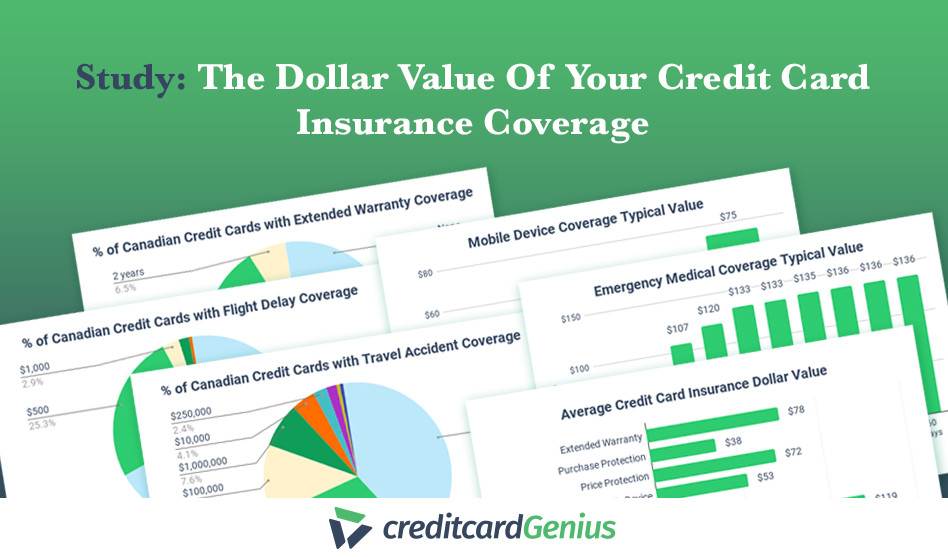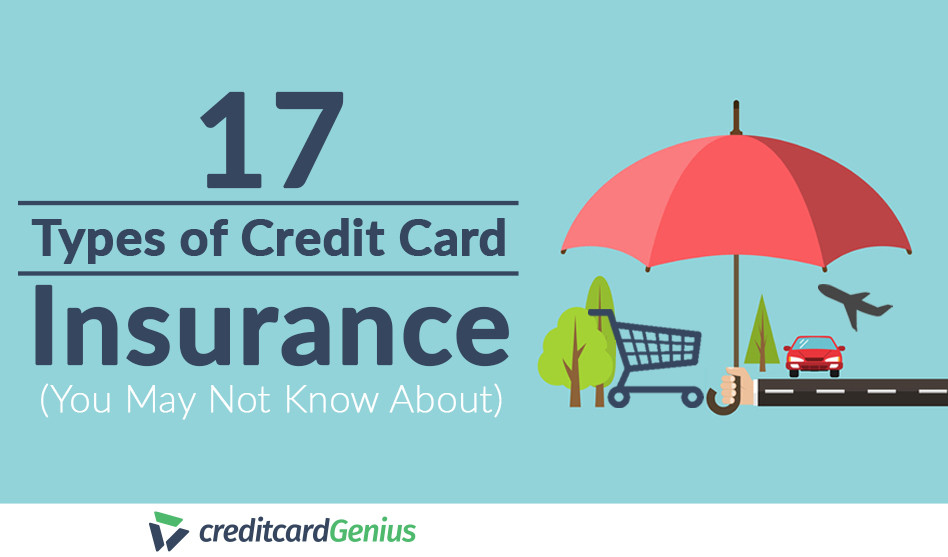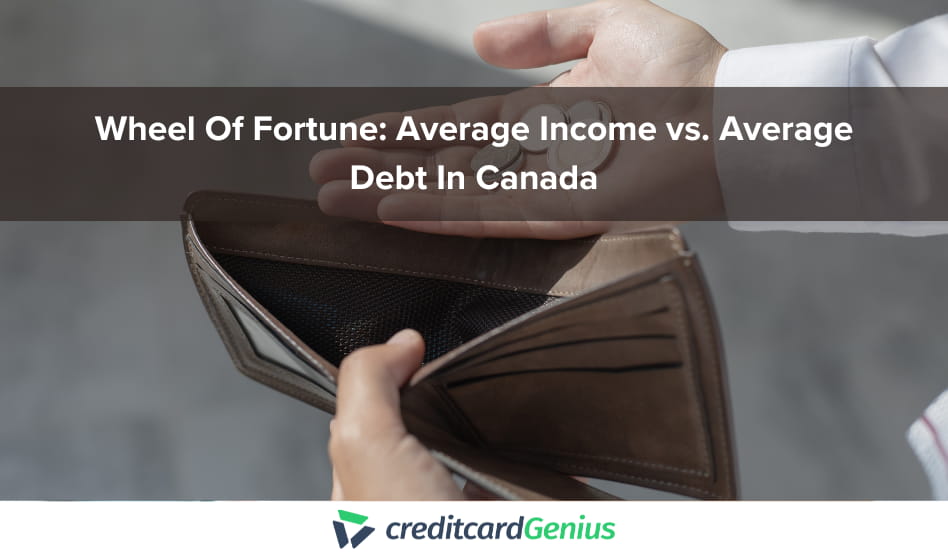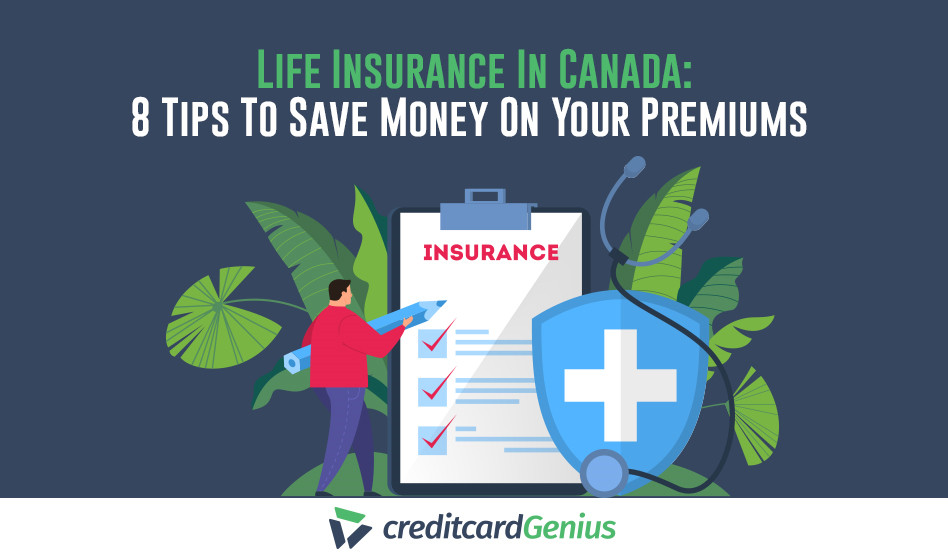Life insurance in Canada can be a complex topic. There are a wide variety of types of life insurance available, and there’s no shortage of insurance companies to choose from.
But what is life insurance? What types of life insurance are available to Canadians? And how do you choose?
We dig into some of these details here, covering the basics of what life insurance is, what types of life insurance are available, and looking at what some of the top life insurance companies in Canada have to offer.
Never miss an amazing deal again + get our bonus 250+ page eBook for FREE. Join 50,000 other Canadians who receive our weekly newsletter – learn more.
What is life insurance?
Life insurance is a type of insurance that pays out a certain amount of money to your beneficiaries if you die while you are covered by the insurance policy.
This monetary payout is called the “death benefit,” and while this normally goes to your spouse or children, you can name anyone as your beneficiary.
You purchase life insurance when you’re still alive, of course, and pay for it through insurance premiums to your insurance company.
Like most types of insurance in Canada, premiums are calculated based on a number of factors. For life insurance, these are normally your age, health, and whether you smoke or not – with younger and healthier people having lower premiums.
Why should you get life insurance?
Death benefits are meant to help your beneficiaries pay for things such as your funeral costs, medical bills, estate settlement costs, outstanding debts, and other related expenses. They can also help make up for any lost income, if you still have a form of income when you pass away.
What types of life insurance are there?
There are 2 general types of life insurance – term life insurance and permanent life insurance.
Term life insurance covers you for a set number of years, with terms normally being 10, 20, or 30 years. Term life insurance usually requires a medical exam, and is available up to a maximum age – often 85 years old – although there are some options that will go beyond this. If you die within the term covered by your insurance, your death benefit will be paid to your beneficiaries.
Permanent life insurance lasts your entire lifetime, so long as you continue to pay your premiums. When you die, your death benefit will be paid to your beneficiaries. Because permanent life insurance is virtually guaranteed to pay out, premiums are usually significantly higher than term life insurance policies.
There are a number of different options for each term and permanent life insurance. Here are some of the more common you’ll find.
| Type of life insurance | Features/Description | Pros | Cons |
|---|---|---|---|
| Renewable term life insurance | A type of term life insurance where you have the option to continue the policy once the term is over | * You don’t have to re-qualify for the policy when renewing * If your health has deteriorated during the term of your initial policy, this can save you money on premiums upon renewal |
* Premiums can go up significantly upon renewal * If you’re still healthy, you may get a better rate by re-qualifying |
| Convertible term life insurance | Term life insurance with the option to convert to permanent life insurance on set anniversaries | * You do not have to re-qualify if you decide to convert | * Higher premiums due to increased risk to the insurer |
| Term to 100 life insurance | A hybrid of term and permanent life insurance | * Works like a simple term policy * Guaranteed to pay out, either upon death, or when you turn 100 |
* Higher overall premiums than shorter term policies |
| Whole life insurance | A form of permanent life insurance that also builds up a “cash surrender value” (CSV) over time | * Like life insurance and an investment account combined * Investment returns can be used to lower premiums or to increase the death benefit value |
* Higher premiums because it’s a permanent life insurance policy * Your insurer picks the investments |
| Universal life insurance | Like whole life insurance, except you have full control over the investment side | * You have full control over the investments | * Investments are subject to taxes, and investment returns will be taxed at withdrawal * Generally best for people who have already maxed out their RRSPs and TFSAs |
| Guaranteed Acceptance life insurance | A form of permanent life insurance for people who are otherwise uninsurable (older people, or those with pre-existing conditions) |
* Guaranteed acceptance * No medical information required |
* Very high premiums * Often has an initial period where the death benefit will not be paid out * Significantly lower maximum death benefit |
| No-medical life insurance | Another form of permanent life insurance, similar to guaranteed life insurance | * Some medical questions will be asked, but no medical exam is required * You can be denied coverage |
* Higher premiums than regular life insurance |
As you can see, there are a number of different life insurance options available, and this isn’t an exhaustive list.
If you’re not sure which type of life insurance is best for you, you might want to speak with an insurance professional or financial advisor before making a final decision.
How much does life insurance cost?
The cost of life insurance depends on the type of coverage you choose, and other factors including:
- your age,
- your personal and family medical history,
- if you smoke,
- your gender, and
- your occupation.
Various insurance companies weigh these factors differently in Canada, so the only way to know how much life insurance is going to cost is to speak with an advisor about your particular situation, preferences, and circumstances.
While some insurance providers will provide online quotes, the best life insurance policies and companies require that you call and speak with an advisor in order to determine the final costs and to make any purchases.
How do you get life insurance?
To get the best life insurance rates available to you, you should start by doing some basic research online.
Look through the options provided by the various insurance providers, and maybe see if there are any local insurance brokers that have a life insurance specialty.
Once you have an idea of what sort of coverage you’re looking for and what companies or brokers you think might be right for you, set aside some time to call and speak with a representative from each.
These insurance professionals will be able to walk you through the options available, and can help you find a life insurance policy that suits you, and that is within your budget.
Don’t make a final decision until you’ve spoken to at least 3 or 4 insurance providers to get quotes and information from each. This way you’ll have a better idea of what the going rates are for various policies, and you’ll be able to make an informed decision.
Can you purchase life insurance online?
While it is possible to purchase some forms of life insurance entirely online, these normally do not require medical exams or other health information, so coverage maximums are lower, and premiums tend to be higher. These are not the best options for life insurance, if you’re able to qualify for other types that do require medical exams.
What are the best life insurance companies in Canada?
There are a large number of different insurance providers in Canada, including companies that focus exclusively on insurance, and banks and credit unions who provide insurance as an added service.
Here are some of the better known life insurance providers in Canada.
| Insurance company | Types of life insurance offered |
|---|---|
| Sun Life Insurance | * Term life insurance * Permanent life insurance * Participating life insurance * Universal life insurance |
| Manulife Insurance | * Term life insurance * Permanent life insurance * Participating life insurance * Universal life insurance * “FollowMe” life insurance |
| Desjardins Insurance | * Term life insurance * Permanent life insurance |
| Canada Life Insurance | * Term life insurance * Permanent life insurance * Participating life insurance * Universal life insurance |
| RBC life insurance | * Term life insurance * Permanent life insurance * Universal life insurance * Personal accident insurance |
| BMO life insurance | * Term life insurance * Permanent life insurance |
| CIBC life insurance | * Term life insurance * Guaranteed acceptance life insurance |
Let’s take a closer look at what these companies have to offer.
Sun Life insurance
Sun Life offers a wide range of insurance and investment products including health insurance, life insurance, savings plans, retirement income plans, and other investment options.
In terms of life insurance, Sun Life offers a full array of both term and permanent options.
| Type of life insurance | Features | Coverage | Apply online? |
|---|---|---|---|
| Term life insurance | * Monthly payments are guaranteed to stay the same for the length of the term * Terms range from 10 to 30 years |
$50,000 to $15 million | Yes, for some types of insurance |
| Permanent life insurance | * Guaranteed life insurance available * Permanent lifelong insurance * Both participating and universal life insurance options available |
* $5,000 to $25,000 for guaranteed life insurance * $250,000 to $10 million for Permanent Life, with the opportunity for an increasing death benefit * Up to $15 million for participating and universal options |
Yes, for some types of insurance |
Sun Life offers a wide range of life insurance policies to cover the needs of most Canadians. You can learn more about what they have to offer here.
Manulife Insurance
Manulife offers a variety of products and services for Canadians, including insurance, investments, banking services, and group plans.
For life insurance, they have both term and permanent options available.
| Type of life insurance | Features | Coverage | Apply online? |
|---|---|---|---|
| Term life insurance | * Up to $250,000 “instant” coverage if you’re between 18 and 55, with no medical exam required (a health questionnaire is required) * Premiums are guaranteed for a 10 year term |
$100,000 to $1 million for people between 18 and 70 | Yes |
| Permanent life insurance | * Cash value growth and long-term protection for whole life insurance * Guaranteed cash values and payment options |
Starts at $25,000 or $100,000 depending on the plan chosen | No |
| FollowMe life insurance | * Provides uninterrupted life insurance if you’re losing insurance from your employer | $25,000 to $200,000, up to the same amount your work covered | Yes |
You can learn more about what Manulife has to offer here.
Desjardins life insurance
Desjardins, based out of Quebec, offers a variety of both term and permanent life insurance options, as well as investment and banking options. Desjardins credit cards are also available to consumers across Canada.
| Type of life insurance | Features | Coverage | Apply online? |
|---|---|---|---|
| Term life insurance | * Terms of 10, 20, or 30 years, or to the age of 65 * Additional coverage available to the age of 85 |
$25,000 to $10 million | No |
| Permanent life insurance | * Variety of options available, including term to 100 * Additional options available, including accidental death coverage |
Starts at $10,000, maximum not stated | No |
If you would like to learn more about the life insurance options offered by Desjardins, click here.
Canada Life insurance company
Canada Life is the result of a merger between Great West Life, London Life, and the Canada Life Assurance company. This combined insurance company offers a variety of insurance, investment, mortgage, and retirement financial products.
For life insurance, Canada Life offers both term and permanent options.
| Type of life insurance | Features | Coverage | Apply online? |
|---|---|---|---|
| Term life insurance | * Terms of 10, 20, or 30 years, or to the age of 65 * Coverage can be customized with a number of optional benefits * You can convert term life to permanent life without having to re-qualify |
Not stated | No |
| Permanent life insurance | * Investments can build value over time * Death benefits are tax-free when paid out to your beneficiaries * Both participating and universal options are available |
Not stated | No |
You can learn more about the life insurance options offered by Canada Life here.
RBC life insurance
The Royal Bank of Canada is one of Canada’s largest banks, offering banking, RBC credit cards, insurance, investment, and other financial services to Canadians across the country
RBC offers both term and permanent life insurance, with a few options available for each.
| Type of life insurance | Features | Coverage | Apply online? |
|---|---|---|---|
| Term life insurance | * Terms from 10 to 40 years, depending on your current age | $50,000 to $25 million | Yes |
| Permanent life insurance | * Universal and term 100 options available | Depends on plan | No |
While RBC doesn’t have as many options available as some of the larger insurance companies, it might be worth investigating what they have to offer in more detail. You can do so here.
BMO life insurance
In addition to banking, investment, and BMO credit cards, BMO has some simple and easy to understand life insurance options available for Canadians.
| Type of life insurance | Features | Coverage | Apply online? |
|---|---|---|---|
| Term life insurance | * Terms of 10 15, 20, 25, or 30 years * Renewal and conversion options available |
$100,000 to $5 million | No |
| Permanent life insurance | * Simplified, term 100, and Guaranteed Life options available | $5,000 to $5 million depending on the plan chosen | No |
While the options are straightforward and it’s easy to get a quote, there is no way to purchase BMO life insurance online, so you will have to call and speak to one of their representatives.
You can learn more about BMO life insurance here.
CIBC life insurance
CIBC is another of Canada’s big banks, offering banking, investment, insurance, CIBC credit cards, and other financial products and services to Canadians.
They offer a smaller array of life insurance options than some of the other providers mentioned above.
| Type of life insurance | Features | Coverage | Apply online? |
|---|---|---|---|
| Term life insurance | * 10 or 20 year terms available * Partial early payout available upon diagnosis of a terminal illness * Convertible to permanent life insurance after the age of 75 |
$50,000 to $5 million | Yes |
| Guaranteed Acceptance life insurance | * Coverage for life * Premiums never change * No medical exam or health questions asked * Only available to people between 40 and 74 years of age |
Up to $25,000 | Yes |
While CIBC doesn’t offer the same range of options as some other insurance providers, you can get some limited life insurance options entirely online through their website.
Learn more about CIBC life insurance here.
Do insurance companies check my credit score?
While insurance providers may sometimes ask permission to check your credit score when you apply for car insurance in Canada, it isn’t a common practice when applying for life insurance.
Car insurance providers want this information because they believe there’s a pattern of people with lower credit scores filing more claims than people with better credit.
As a result, if you have poor credit, you may end up paying higher premiums for auto insurance, as providers will see you as a greater risk.
Can I refuse to let an insurer check my credit score?
If an insurance company wants to check your credit score, they will have to get your permission first. You’re able to refuse this request if you like.
That said, however, if you do refuse their request to check your credit score, they can similarly refuse to give you a quote or to provide you with insurance coverage. This is a choice you’ll have to make for yourself.
Complimentary credit card insurance can save you hundreds of dollars a year. Learn more here.
8 tips for saving money on life insurance
There are a number of ways you can reduce your life insurance premiums to better fit within your budget. Here are our top tips.
1. Get life insurance when you’re young
Life insurance premiums go up as you get older, or if you have a less-than-stellar medical history. You’ll get the cheapest premiums when you’re a lower risk of death, meaning when you’re young and healthy.
Of course, this is when you’re least likely to actually need life insurance, so it’s really a question of whether you want to pay the extra for peace of mind, or if you would rather pocket that money (and ideally invest it somewhere else).
2. Choose shorter terms for term life insurance
If you get term life insurance, your premiums will go up the longer the term you choose. This is because your insurance provider does a bunch of math to calculate the risk of you passing away during that time, and spreads the possible cost out over the full length of your term.
Because of this, you’ll pay lower premiums for a 10 year term than you will for a 30 year term. On the other hand, when you go to get a new 10 year term, your premiums will likely go up since you’ll be 10 years older.
But if you stay healthy, it might be best to get a shorter term, as the premiums on a new term plan may be lower than if you opt for a longer plan in the first place.
3. Pay annually instead of monthly
If your insurance provider offers an option to pay for your coverage annually instead of monthly, take a moment to do the math and see how much you might save. It’s easier for providers to process annual payments (less overhead and paperwork), and they will often pay those minor savings along to you.
4. Don’t buy permanent life insurance until it makes sense
Term life insurance is for a limited time (usually 10 or 20 years) and, as such, exposes the insurance provider to less risk. As a result, premiums for term life insurance are often much lower than for permanent life insurance, which is virtually guaranteed to pay out at one time or another.
If you’re young and healthy, it may be best to stick with term life insurance until you get older, or face a health-related setback. When it’s likely to be less expensive to maintain permanent health insurance over the long term, switch to that type of plan.
5. Lower your coverage when your needs decrease
When you’re in the prime of life and have a new mortgage, various debts, a spouse, and children or other dependents, it makes sense to have a more significant amount of insurance coverage. Should you pass away when you still have all of these obligations, your beneficiaries are more likely to need that extra coverage in order to manage.
As you age, however, your financial obligations will decrease, and your dependents are more likely to be able to provide for themselves (and no longer be dependents).
When this happens, it makes sense to lower your life insurance coverage so it more closely matches your current needs. This will lower your premiums, and keep more of that money in your pocket, just when you may need it the most.
6. Don’t get non-medical life insurance
Life insurance that doesn’t require a medical exam or health questionnaire is available and easy to qualify for, but the death benefits have a much lower maximum, and, since the insurance provider is taking a greater risk, your premiums will be higher.
If you’re in good health, get life insurance that requires a medical exam. This extra information gives the insurance provider solid information upon which to calculate your overall risk, and can lower your life insurance premiums a great deal.
7. Don’t renew your term policy (if you’re still healthy)
While it’s easy to simply allow your term life insurance policy to automatically renew at the end of the term, your premiums will also automatically go up. If you’re still hale and healthy, opt to take another medical exam and re-qualify for a new term life insurance policy.
If your exam shows that you’re still healthy, this will likely turn into lower premiums for your new life insurance policy.
8. Quit smoking
For the quotes we were able to get online, the life insurance premiums for people who smoke were double or higher than those of non-smokers. While you’ll have to be a non-smoker for at least a year or longer in order to qualify for these lower premiums in most cases, quitting smoking is one of the quickest ways you can cut your life insurance premiums.
Did you know that most credit cards include complimentary insurance? Read about the types of credit card insurance we track.
Bottom line
Life insurance can be expensive, but it can give you added peace of mind knowing that your loved ones will have a financial buffer should you pass away unexpectedly.
Do you have life insurance?
If not, why not?
Let us know in the comments.
FAQ
Do I need life insurance?
While life insurance isn’t normally required for most people, it can give you added peace of mind to know that your loved ones will have a financial buffer should you pass away unexpectedly. This can not only help cover your end-of-life costs, but it can help your spouse and family weather the transition if they suddenly lose your income.
Does life insurance affect my credit score?
Life insurance doesn’t impact your credit score at any point. Insurance companies in Canada do not report payment histories or coverage to credit bureaus, so it does not have any affect on your credit report.
What’s the best type of life insurance?
The best type of life insurance depends entirely on your personal situation and circumstances. If you’re young and healthy with no dependents, you will likely be better off getting term life insurance that gives you reasonable coverage for lower premiums. As you get older, however, and your life situation changes (you get married, for example, or have children), you may want to increase your life insurance coverage. And as you get older still, you may want to consider getting permanent life insurance that will cover you for life and have lower premiums when factored over a longer period of time.
Can I buy life insurance online?
While it’s possible to get quotes for and purchase some forms of life insurance online, those are usually more basic types of life insurance that don’t require medical exams. These types of insurance usually have higher premiums and lower benefits than more elaborate policies that have more stringent requirements. If you’re healthy, you could save money on premiums by contacting an insurance advisor and going through the process of getting a medical exam.
creditcardGenius is the only tool that compares 126+ features of 227 Canadian credit cards using math-based ratings and rankings that respond to your needs, instantly. Take our quiz and see which of Canada's 227 cards is for you.











 GC:
GC: 


































Comments
Leave a comment
Required fields are marked with *. Your email address will not be published.